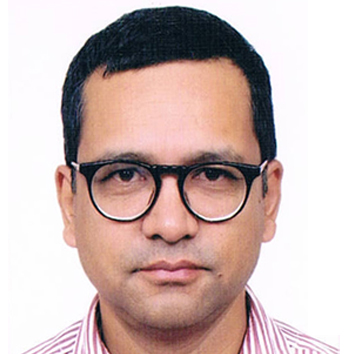Columns
Dissecting PhD sagas—I
The main mission of any PhD programme should be that students learn to become researchers during their studies.
Pratyoush Onta
Two weeks ago I got a phone call from a friend I first met in the early 1990s. He told me he was applying to a PhD program at one of the universities in Nepal. He further said the university required its PhD applicants to have published two research articles as part of its eligibility requirements. The friend had written an article to meet this requirement and asked me to quickly read it to see if it would make the “cut” in one of the journals I edit. After reading his article, I told him that it was not good enough for the journal since, at under 2500 words, it was too short in length and shallow in its analysis (meaning, it would be “desk rejected” if submitted formally).
This encounter got me thinking. In the Fall of 1987, as a senior student in college, I applied to some of the best economics PhD programs in the USA. My major in college was economics, but I had taken quite a few maths courses. My GPA was good and I assume that my college teachers wrote decent recommendations for me. Based on these credentials, I hoped to get into one of the better PhD programs (although I was already having doubts about pursuing economics as an intellectual vocation). While several universities turned me down, my application was accepted by several good economics PhD programs, including the one at the University of Pennsylvania (UPenn), where I enrolled.
None of the 10 universities I had applied to then said I needed to have published research articles to be eligible to apply. If there had been such a requirement, my application would have been disqualified immediately since I had not done much original research in economics while in college, let alone publish anything related. Later when I abandoned the study of economics and began to pursue a PhD in history at UPenn, the new department also did not say that this was a requirement to approve my internal transfer.
So what exactly is the point of this eligibility requirement—two research articles published before you can join a PhD program—for potential applicants? As we all know, universities require that applicants submit all kinds of documents as part of their applications. These would include transcripts which detail the courses they have taken and the grades obtained in previous BA and MA level studies; scores from standardised tests (such as GREs) when appropriate; recommendation letters; personal statements regarding why they want to pursue a particular doctoral program given their previous academic and work backgrounds; and in some cases, a writing sample and (especially in European universities), a proposal for the doctoral research you want to do. The last requirement is usually not in the PhD programs with a long coursework component. These days, some programs also interview shortlisted applicants.
All of these documents (and the interview) provide various signals and help in an overall assessment of any applicant’s suitability for the concerned PhD program, namely, figuring out whether or not he or she is ready for a multiple-year research odyssey. Perhaps, some universities, including the one my friend is applying to, think that the already published research articles provide stronger signals than all of the other documents I have mentioned above. If so, that university and others with similar requirements are mistaken regarding the primary mission of their PhD programs.
The main mission of any PhD programme in any discipline ought to be that those students who enroll in it learn to become researchers during their studies. This process would entail learning to read what other people have written on various themes of the particular discipline’s concern, identifying a knowledge gap, designing a research project to fill that gap, executing the research using credible methods, and writing the dissertation. The student joining a PhD program shouldn’t be expected to know all of these things prior to their doctoral training. The whole point of the PhD training – spanned over several years—is to learn to do all of the above at a fairly good competence level through recursive efforts under the supervision of relatively senior scholars in your field. Yes, applicants need to demonstrate—through their entire application package—that they are capable of joining the research adventure. However, the other documents submitted as part of the application process should be enough for such an evaluation.
If you agree with the way in which I have characterised the primary mission of any PhD programme, then you would certainly agree that from the point of view of the potential applicants, institutionalising the need for already published research articles as part of their application works as a barrier to entry. The universities in Nepal that have this requirement are not welcoming places for potential PhD students hoping to be nurtured through the doctoral training process. Instead, this requirement signals that the very start of their PhD programmes—the applicant selection process—suffers from a bureaucratic mindset about which I have written previously (“Structural Ills of Our Universities”, 20 January 2023).
There is more to my friend’s story. He already has a bachelor’s degree in his field of work and a master’s degree in a related field. He has more than 32 years of work experiences that encompass ground-level hands-on work to top-level managerial positions in various projects. In all these years of working in different capacities, he has amassed a vast amount of knowledge about his field. In fact, it would not be an exaggeration to suggest that he is one of the most knowledgeable persons about his field. But as far as I know, he has never claimed to work as an academic researcher and that should not be a disqualification if he now wants to become a PhD aspirant. Quite the contrary, the university in question should welcome him with open arms.
If I were the admissions dean of the school in which my friend’s proposed PhD program is located, I would have told him to just write a long personal statement explaining why he wants to do a PhD at an age when some of our mutual friends are thinking about retirement and what he wants to do subsequently with that training. If my university was also one that espoused industry-academia collaboration, I would have considered his application to fit this rubric perfectly. This would be so since the point of such a collaboration is not to invent a technology all the time that can be marketed but to bring the considerable knowledge possessed by industry insiders (like my friend) and give them academic space to articulate that knowledge. Our universities are champions of stupid mantras but are rather slow in providing such flexibility. Without flexibility, PhD programs cannot be inclusive in the more expansive sense of the word.
But is anyone who gatekeeps the admission process in Nepali universities actually reading this?
The second installment of this column will be published next fortnight.




 9.7°C Kathmandu
9.7°C Kathmandu















